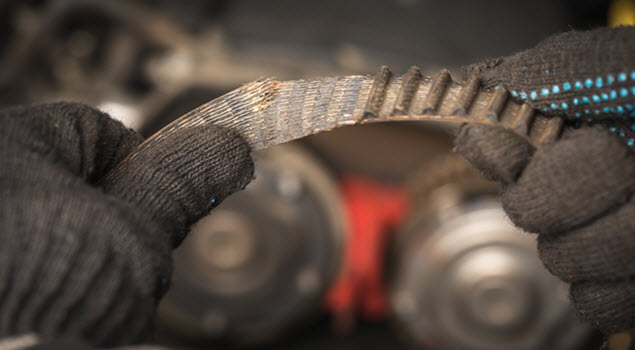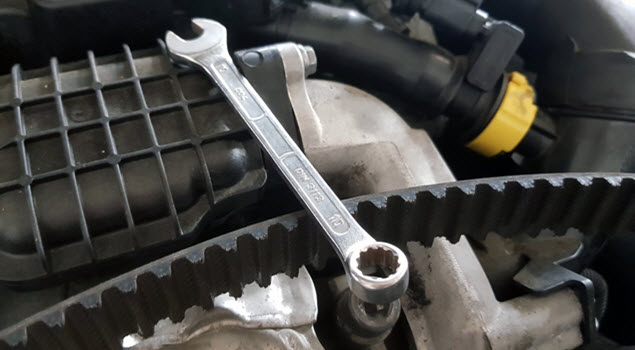As a BMW owner, it is important to understand the importance of maintaining your vehicle and keeping it in good working condition. One crucial maintenance task that should not be overlooked is the replacement of the timing belt. This is a vital component that helps to keep your engine running smoothly, and if it fails, it can cause serious damage to your vehicle. In this article, we will discuss when you should consider replacing your BMW timing belt.
What Is The Timing Belt?
First, it is important to understand what the timing belt does and why it is so essential. The timing belt is a long, narrow belt that is made of rubber and reinforced with fibers. It is located within the engine and is responsible for synchronizing the rotation of the camshaft and crankshaft. This helps to ensure that the engine’s valves open and close at the right time, allowing the engine to run smoothly. A timing belt is a vital component of your BMW’s engine. If the timing belt breaks or slips, it can cause serious damage to your engine. That’s why it’s important to replace your timing belt at the recommended intervals.
The timing belt is subjected to a lot of wear and tear, as it is constantly being stretched and subjected to heat and vibration. Over time, the belt will begin to wear out and may need to be replaced. If the timing belt fails while the engine is running, it can cause the valves to open and close at the wrong times, which can lead to engine damage. In some cases, this damage can be extensive and costly to repair.
Replacing Your Timing Belt
So, when should you consider replacing your BMW timing belt? The answer will depend on your specific vehicle and the recommendations of the manufacturer. In general, most BMW models recommend that the timing belt be replaced every 60,000 to 100,000 miles. However, this can vary depending on the model and the age of the vehicle. It is always best to consult your owner’s manual or a BMW dealership for specific recommendations.
There are also some signs that you may notice when it is time to replace your timing belt. One of the most common is a noticeable decrease in engine performance. If your engine is not running as smoothly as it should, it could be a sign that the timing belt is wearing out and needs to be replaced. You may also notice a strange noise coming from the engine, which could be a sign that the timing belt is misaligned or has become loose.
Another sign that your timing belt may need to be replaced is if you notice any oil leaks around the front of the engine. The timing belt is located in this area, and if it is leaking oil, it could be a sign that the belt is worn or damaged. Finally, if you have not had your timing belt replaced in the recommended time frame, it is a good idea to have it checked and potentially replaced as a preventative measure.
The timing belt is a vital component of your BMW’s engine and is responsible for keeping it running smoothly. It is important to keep track of the age and mileage of your timing belt and to replace it when recommended by the manufacturer or if you notice any signs of wear or damage. By doing so, you can help to prevent costly engine damage and ensure that your vehicle is running at its best.
Book Your Appointment With Woodinville Sports Cars Today!
Woodinville Sports Cars is the premier specialist in BMW timing belt installation and replacement for Woodinville and the surrounding areas, including Bothell, Kenmore, Kirkland, Mill Creek, Monroe, Redmond, and Snohomish. Our team of experienced technicians are thoroughly trained and certified to offer high-quality repairs with quick turnarounds and competitive rates.
We recommend replacing your BMW timing belt every 60,000-100,000 miles as preventive maintenance to ensure proper engine functioning. If you haven’t replaced your BMW timing belt recently or are unsure how old it is, Woodinville Sports Cars can take care of it in a timely manner so you can get back on the road quickly.





Recent Comments